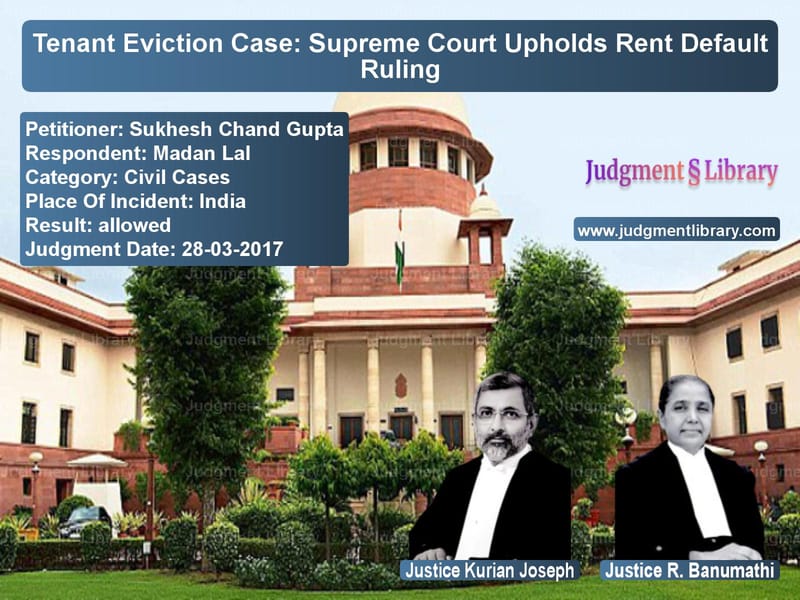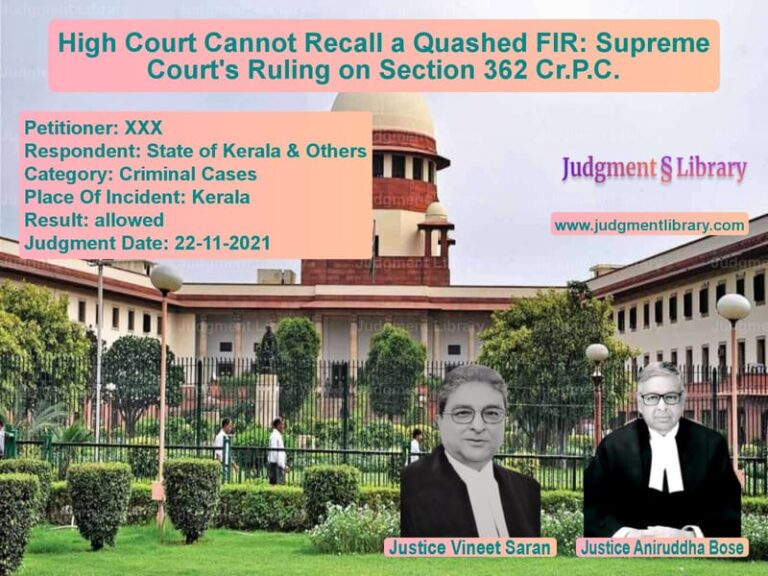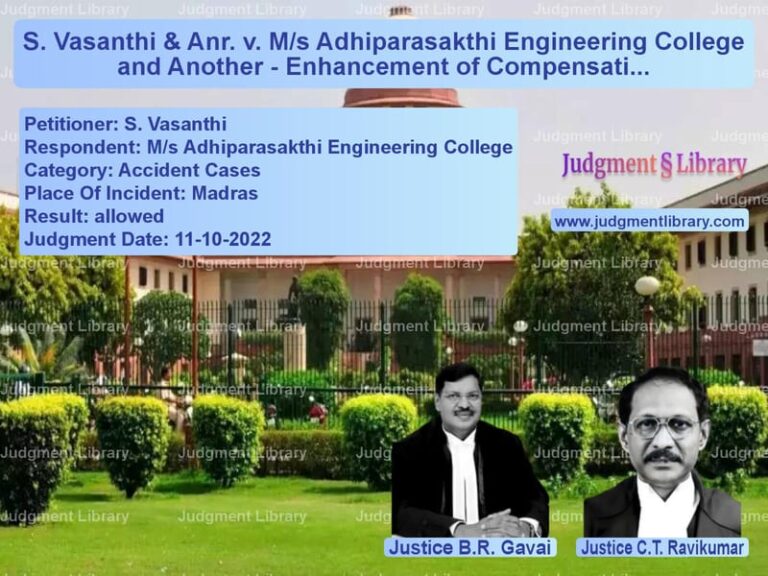Tenant Eviction Case: Supreme Court Upholds Rent Default Ruling
The case of Sukhesh Chand Gupta v. Madan Lal revolves around a long-standing landlord-tenant dispute regarding the default in rent payment. The Supreme Court was tasked with deciding whether the High Court was justified in overturning two concurrent findings of default in rent payment, which had previously been upheld by both the trial court and the appellate authority.
The appellant, a landlord, approached the Supreme Court after the High Court, under Article 227 of the Constitution, set aside the eviction order. The Supreme Court ruled in favor of the landlord, reinstating the findings of the Rent Controller and appellate authority and granting the tenant limited time to vacate the premises.
Background of the Case
The dispute arose when the landlord filed an eviction suit against the tenant for non-payment of rent. The Rent Controller and the first appellate authority both found that the tenant had defaulted on rent payments, leading to an eviction order.
The tenant challenged this decision before the High Court, claiming that the rent had been sent through a money order, but the landlord refused to accept it. The High Court accepted this argument and overturned the eviction order, ruling in favor of the tenant.
The landlord then approached the Supreme Court, arguing that the High Court had erred in its judgment by considering new evidence (the money order claim) that had not been presented before the lower courts.
Petitioner’s Arguments Before the Supreme Court
The landlord, represented by legal counsel, made the following arguments:
- The trial court and the appellate authority had both ruled that the tenant had defaulted on rent payments.
- The claim that the rent was sent via money order was raised for the first time before the High Court and was not supported by evidence before the lower courts.
- The High Court had no justification to overturn the findings of two concurrent lower court rulings.
Respondent’s Counterarguments
The tenant, on the other hand, argued:
- The rent was sent via money order, but the landlord refused to accept it.
- The tenant was not in willful default, and the eviction order was unfair.
- The High Court had correctly exercised its jurisdiction under Article 227 to set aside the eviction order.
Supreme Court’s Judgment
The Supreme Court, comprising Justices Kurian Joseph and R. Banumathi, ruled in favor of the landlord, making the following observations:
- The claim regarding the money order was introduced only before the High Court and had not been raised before the trial court or the appellate authority.
- The amount sent via money order (Rs. 632/- in May 2002) was significantly higher than the monthly rent (Rs. 24/- per month), raising doubts about its credibility.
- The case was one of willful default in rent payment, justifying eviction.
The Supreme Court ruled:
- The High Court’s decision was set aside, and the eviction order issued by the Rent Controller and upheld by the appellate authority was restored.
- The tenant was granted time until Diwali 2018 to vacate the premises.
- The tenant was required to file an undertaking within three weeks, committing to vacate the premises by the agreed deadline.
- The tenant was prohibited from subletting the premises or altering the nature of the business.
- Failure to comply with the conditions would result in legal consequences, including contempt proceedings.
Key Legal Takeaways
This judgment establishes several important legal principles:
- Limited Scope of High Court’s Powers under Article 227: The Supreme Court reaffirmed that High Courts should not interfere with concurrent factual findings unless there is a gross miscarriage of justice.
- Evidence Must Be Raised at the Right Stage: Claims such as the alleged money order payment should have been raised before the trial court. Raising new evidence at the High Court stage was inappropriate.
- Tenant’s Responsibilities in Rent Payment: Tenants must ensure that rent is paid in a timely manner through proper channels, and failure to do so can result in eviction.
Implications for Future Landlord-Tenant Disputes
This ruling sets a precedent for similar cases:
- High Courts should be cautious when intervening in eviction orders passed by Rent Controllers and appellate authorities.
- Tenants must follow proper legal procedures when claiming to have paid rent.
- Landlords are entitled to eviction if tenants fail to pay rent on time.
Conclusion
The Supreme Court’s ruling in Sukhesh Chand Gupta v. Madan Lal restores the eviction order and upholds the rights of landlords in cases of willful rent default. By reinforcing legal procedures and ensuring that factual findings are respected, the judgment strengthens the framework for landlord-tenant relations in India.
Don’t miss out on the full details! Download the complete judgment in PDF format below and gain valuable insights instantly!
Download Judgment: Sukhesh Chand Gupta vs Madan Lal Supreme Court of India Judgment Dated 28-03-2017.pdf
Direct Downlaod Judgment: Direct downlaod this Judgment
See all petitions in Landlord-Tenant Disputes
See all petitions in Property Disputes
See all petitions in Judgment by Kurian Joseph
See all petitions in Judgment by R. Banumathi
See all petitions in allowed
See all petitions in supreme court of India judgments March 2017
See all petitions in 2017 judgments
See all posts in Civil Cases Category
See all allowed petitions in Civil Cases Category
See all Dismissed petitions in Civil Cases Category
See all partially allowed petitions in Civil Cases Category







